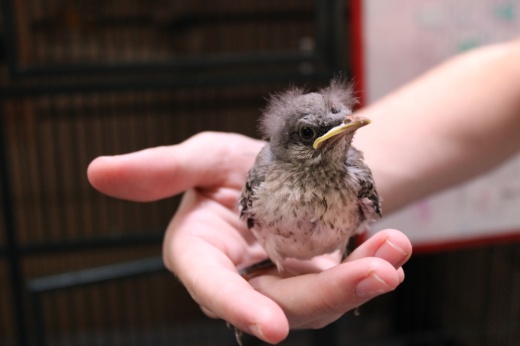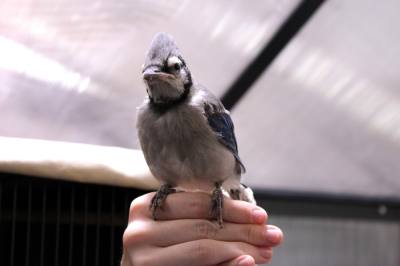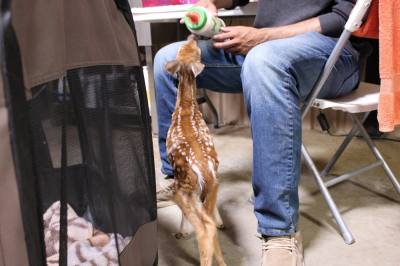Seven years later, Laughlin opened All Things Wild Rehabilitation, a nonprofit northeast of Georgetown equipped with staff and volunteers who help orphaned, sick or injured animals—from fawns to skunks—return to the wild.
The big picture
Director Sharon Dunning began volunteering in 2020 and now oversees the nonprofit’s educational programs. Seeing wounded, hurt or neglected animals arrive at the facility breaks her heart, she said.

“They're just so helpless, and they want you to help them and feed them and love on them,” Dunning said.
During its busiest season, the nonprofit is staffed with around eight or nine full-time employees, who tend to the animals’ needs and feed them, Dunning said. All Things Wild Rehabilitation also relies on volunteers, with about 50 who help out weekly, she said.
“Everybody here loves animals,” Dunning said.
As of early August, the rehabilitation center has seen 3,754 animals in 2025 and Dunning anticipates reaching 4,000 by the end of the year.

How it works
To restore injured animals back to health, the nonprofit’s team works under veterinarian protocols to set broken bones, administer pain medications and more. Volunteer veterinarians assist the nonprofit with complicated surgeries, like wing amputations, Dunning said.
Animals are usually returned back to where they came from, and are always released into safe environments with food and water—far away from roads or predators, Dunning said. Setting animals back into the wild after rehabilitating them makes Dunning feel like a proud parent, she said.

“You're invested in their well being and so you feel good,” Dunning said. “It's kind of like sending the kids off to school.”
Going forward
While the nonprofit is entirely funded through donations, the team never turns animals away, Dunning said. Looking ahead, she said the nonprofit’s biggest wish is to expand from its current two-acre site.
“We need more space,” Dunning said. “We would really be thrilled if we could find a donor to donate some land.”

The takeaway
Residents who discover wounded or neglected wild animals can contact All Things Wild Rehabilitation to be advised on what to do.
“We all love animals, and we would like to see them grow, and [be] nurtured back,” Dunning said.







